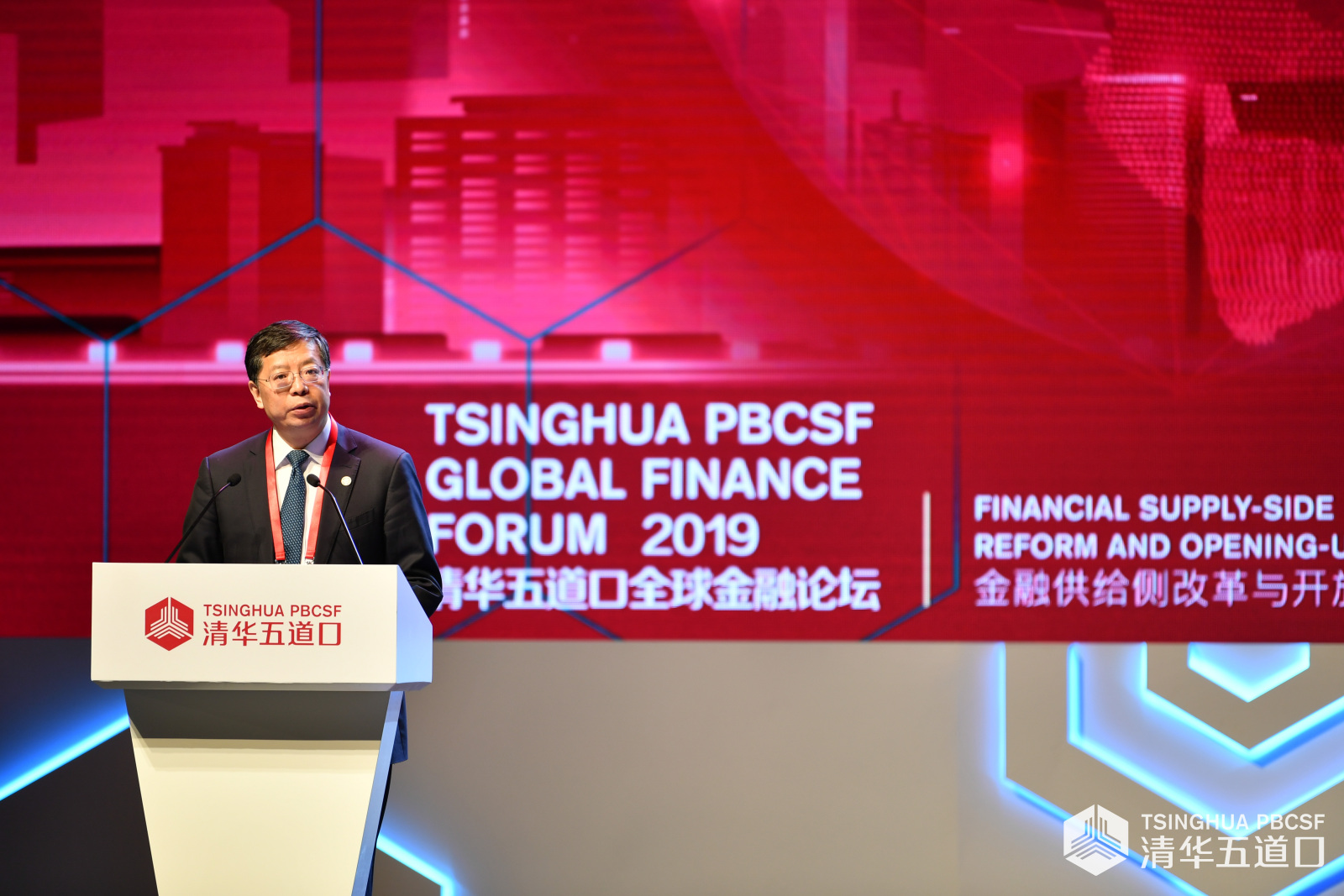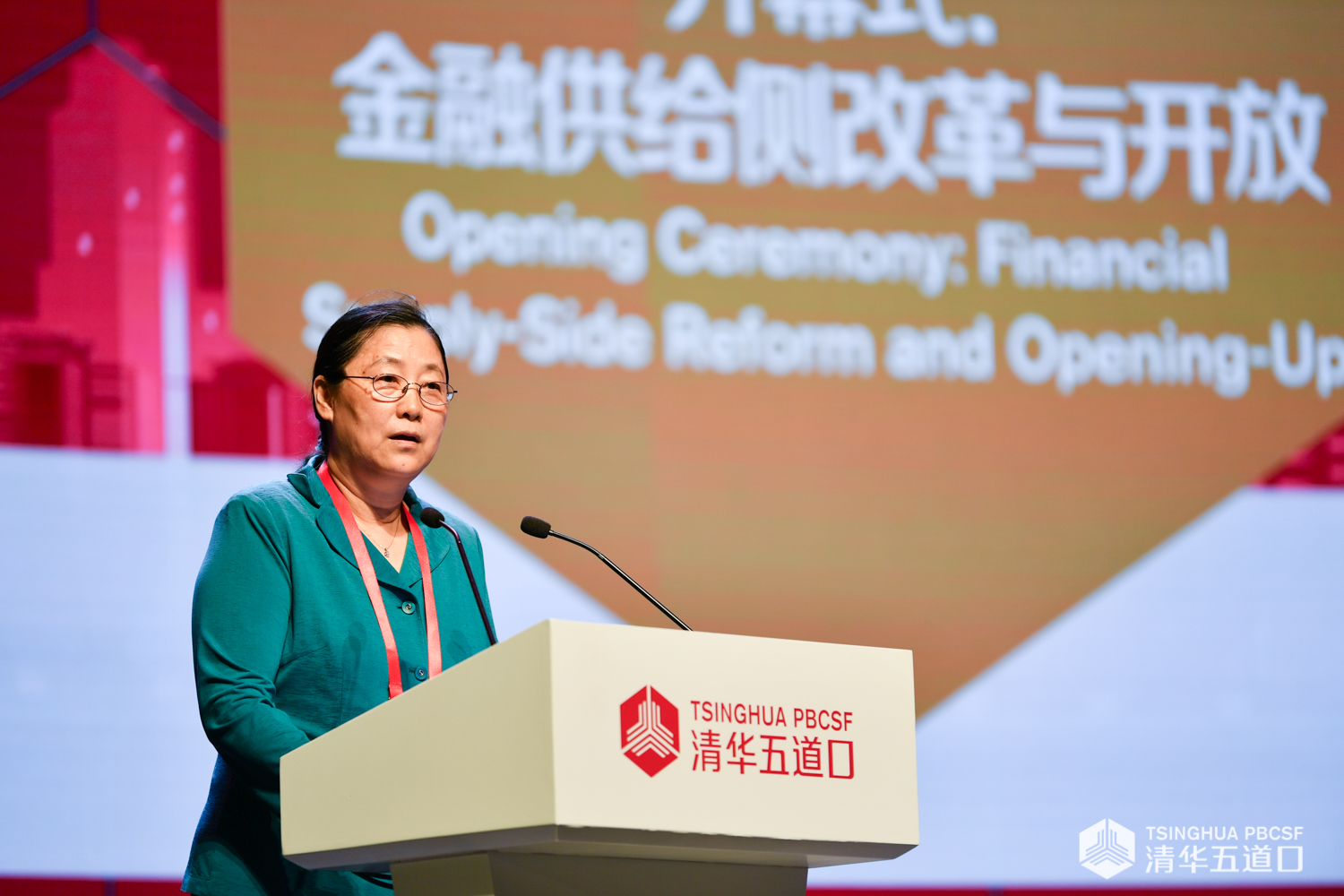This Saturday, May 25, 2019 marked the beginning of the 5th annual Tsinghua PBCSF Global Finance Forum hosted within the walls of Tsinghua University and organized by Tsinghua University PBC School of Finance (PBCSF), National Institute of Financial Research (NIFR) and Institute for Fintech Research (THUIFR) at Tsinghua. The forum is dedicated to the topic of “Financial Supply-Side Reform and Opening-Up” and has gathered more than a hundred global financial leaders and intellectuals to share their opinions on ongoing opportunities and challenges in finance with two thousand audience members. The event was opened by speeches of Qiu Yong, President of Tsinghua University, and Zhang Xiaohui, Dean of the PBC School of Finance.

Qiu Yong
In his opening speech, Mr. Qiu extended warm welcome to forum participants and underlined the fundamental role of financial sector in modern Chinese economy. He noted that China’s financial system and operational environment advanced significantly in recent years, which helped boost economic development. “Finance is gradually becoming the core competence of Chinese economy”, Qiu said. Mr. Qiu stressed the importance of the Global Finance Forum in exchanging ideas on China’s global financial integration, improvement of financial system governance and fostering financial innovation.
“PBCSF is a new page in financial education”. He highlighted that Tsinghua University has always given high priority to financial research, which the PBC School of Finance makes a great contribution to. Qiu also emphasized the commitment of the university, who celebrated its 108th birthday last month, to opening up and promoting high-quality education globally. Such initiatives as launch of the system to attract high-quality talent in 2016 demonstrate Tsinghua’s readiness to promote global talent development, he says.
The second opening speech by Zhang Xiaohui, Dean of the PBCSF, underlined significance of the forum in the context of global economic uncertainties. Despite the global financial crisis of 2007-2008 occurred a decade ago, its consequences and outcomes can still be felt in the economy, she says. Megatrends, such as the rise of protectionism and reverse of globalization, pose a serious challenge; however, the ongoing situation presents the “opportunity for China’s rejuvenation”, as she says, since China is a great and responsible economic power. Ms. Zhang notes that Chinese economy faces considerable challenges: slowing trade and economic growth and regional disparity. This is exactly why the support from financial sector is needed now.

Zhang Xiaohui
Dean of the PBCSF also explained why financial regulation in China demands greater attention. Growth of fintech and financial innovation, lagging financial regulation and increasing international competition require decisive reforms in China’s financial system to achieve greater openness. China has the world’s largest bank, but the country’s financial sector needs to open up further to fully engage with the global financial system, the speaker says.
Last part of Ms. Zhang’s address focused on the PBCSF’s contribution to financial research and education of future leaders in the financial world. The PBCSF, built on the legacy of the Graduate School of the People’s Bank of China, has been a place for cutting-edge research in finance for four decades now. The school has contributed to establishing China’s pipeline of exceptional talent and research and is on a path to become a world-class financial institute. Its programs, including Master of Finance, PhD in Finance and Cornell-Tsinghua Dual Degree Finance MBA, helped advance Tsinghua University’s international profile.
Ms. Zhang emphasized that the PBCSF pays great attention to the topics of science and technology innovation and role of artificial intelligence, cloud computing and fintech in modern financial landscape. These topics, and also new rules of asset management, improvement of consumer spending and development of national sports economic system are reflected in the Global Finance Forum’s agenda. Ms. Zhang finished her speech by expressing the hope that the forum would promote cooperation and contribution to financial research.
Both opening speeches were received with high enthusiasm and gave an energetic start to the Global Finance Forum of 2019. The 2-day forum covers important financial topics ranging from China’s financial policy, systemic financial risk and capital market to finance-driven development of culture and sports.